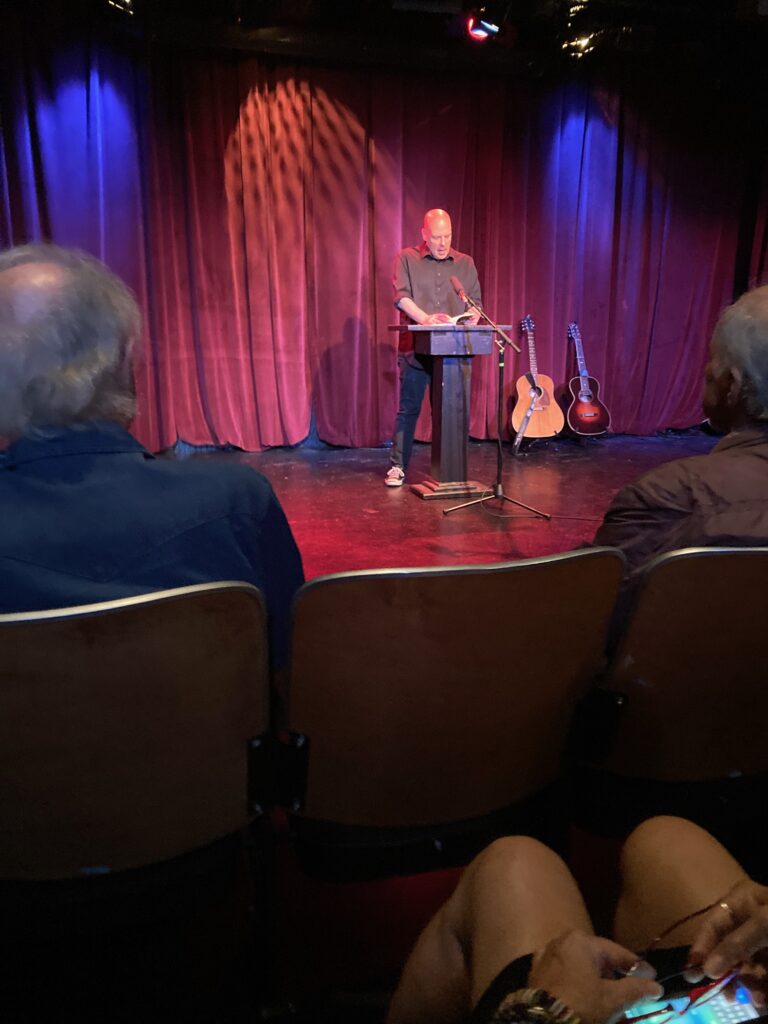
(Brendan Constantine)
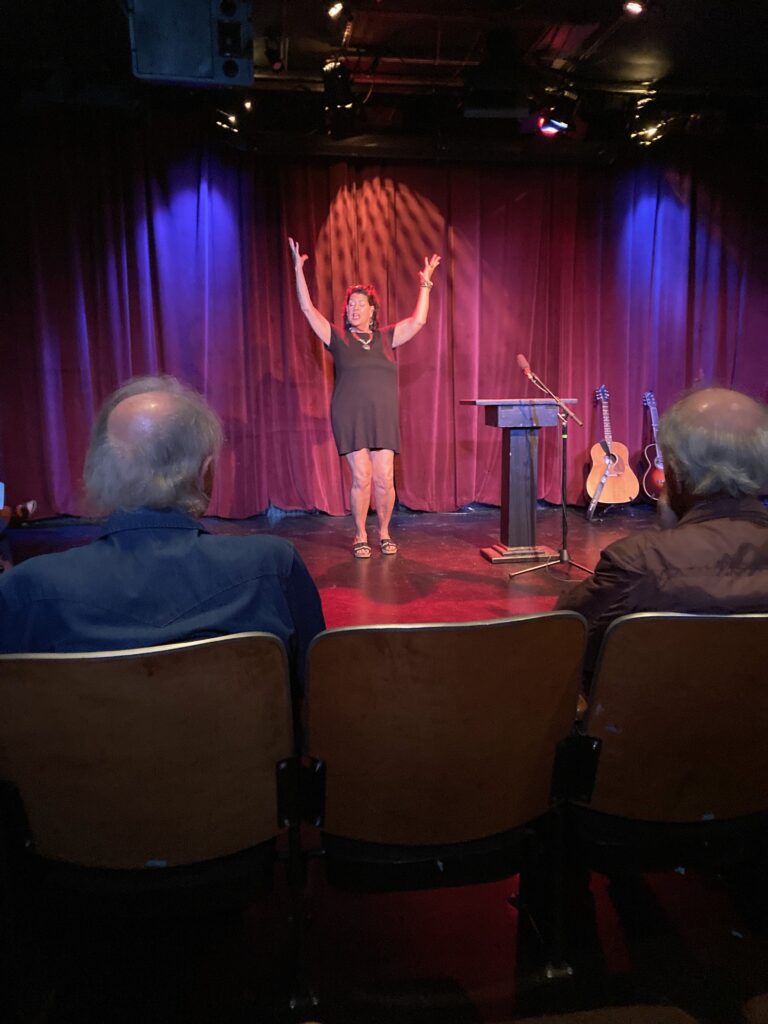
(Kennon B. Raines)
On Saturday afternoon, May 20, Beyond Baroque hosted a reading for the anthology of Beat and Beat-associated poets that was published last yearly Eric Morago’s Moontide Press. The anthology was primarily edited by Rich Ferguson, but three other poets also provided editorial guidance (Alexis Rhone Fancher, S.A. Griffin, and Kim Shuck). Most of the best-known poets in this anthology who were in the original contingent of Beat writing are dead (Bob Kaufman, Diane di Prima, Jack Hirschman, and Lawrence Ferlinghetti). Of those who read at the Six Gallery in 1955, only Gary Snyder is still with us. The roll call in this anthology of those who have passed also includes some of the most famous poets who have lived and worked in Los Angeles, such Wanda Coleman and Charles Bukowski. Ferguson’s anthology also features contemporary poets such as Douglas Kearney, Brendan Constantine, Kim Addonizio, Ellyn Maybe, Will Alexander, and former United States Poet Laureate Robert Hass.
I have to admit that the subtitle of this anthology continues to puzzle me. “Screwing on the Beat Tradition.” Not to put too fine a point on it, but “screwing on” is a phrasal verb that reeks of mid-20th century slang. If one were to imagine some hipster character in a play or novel set in 1962 recounting his sexual exploits, he might say, “My girlfriend and I were screwing on the couch when we heard someone breaking into the house next door.” I understand what the editors mean by the “Beat Tradition” part of the subtitle, but the screwing part remains opaque.
The reading at Beyond Baroque included several stand-out performances. Brendan Constantine’s poem, in particular, radiated an effusive wit and command of imaginative counterfactuals that was spellbinding. Perhaps it’s time for the County of Los Angeles to have a poet laureate, too, and I would be pleased to hear that Brendan had been selected for that honor at some point in the future. Another poet who stood out is also someone who will soon have her first book of poems published by MoonTide Press, Susan Hayden. Her poem, “She Said,” reminded me of Strindberg’s great one-act play, “The Stronger,” in how it used a monologue by another character to create a self-portrait of the narrator. Perhaps the most surprising revelation of the afternoon was the performance of Kennon B. Raines, who stood in for the late Linda Albertano by channeling the exuberant vibrations that still linger in Beyond Baroque’s reading space from Albertano’s years of performing there. I was completely unfamiliar with Raines’s work, and Ferguson and company deserve applause for bringing her into the fold. There was no question but that she deserved a place alongside some of the most senior poets on the scene, such as Harry E. Northup, Michael C. Ford. and Laurel Ann Bogen. Not far behind that trio in acclaimed longevity were other poets such as Sarah Maclay and Steve Abee. If the Beat Tradition continues to reverberate in California more than any other region in the United States, it is in part because of the efforts of a publisher such as Eric Morago, whose MoonTide Press is rapidly becoming a respected heir of the small press tradition in Los Angeles that was embodied by such projects as Paul Vangelisti and John McBride’s Red Hill Press, Dennis Cooper’s Little Caesar Press, Doug Messerli’s Sun & Moon, and my own Momentum Press. Social agitation was not far from the minds of those present, and Richard Modiano’s revisitation of the theme of revolution was especially stirring. I had never heard several of the poets in person before: in particular, it was gratifying to have a chance to meet Richard Loranger, whose work I have long been familiar with, and to applaud in person poets such as Nicelle Davis, Bob Branaman, Milo Martin, and Daniel Yaryan. I was not the only poet from Long Beach: Kevin Ridgeway joined me in the final group photograph, along with the fine musical duo, Petty Chavez, whose song about Eurydice concluded the afternoon’s enchantments.
I wish that Rich Ferguson has given himself permission to read an extended piece. Given his dual role as the book’s primary editor as well as continually in motion M.C. for the event, I would have thoroughly enjoyed hearing a reprise of the poem he read at the Los Angeles Public Library event that Lynne Thompson organized about eight months ago. My own reading of “Good Work, If You Can Find It” was a peculiar experience. I was about a fifth of the way through the poem when the audience decided it was over and began to applaud. Not just a few people, the whole crowd produced a solid seven-second burst of clapping. Well, who was I to argue with them? “It ain’t over, until it’s over,” said Yogi Berra, and this seemed to be a case in point. As a bit of balm, I deeply appreciated Eric Morago’s tribute to my influence on him as one of his teaches back when he was an undergraduate as well as a MFA student at CSULB.
Finally, a short comment about the missing in BEAT, NOT BEAT. Even though BEAT, NOT BEAT includes a couple hundred poets, it is rather astonishing to realize that poets such as William Witherup, Mary Leary, Michael Hannon, John Thomas, and Bruce Boyd were left out. Does not Eileen Aronson Ireland deserve a page, too? The omission of John Thomas is especially puzzling, given that his widow, Philomene Long, was included. (In fact, Philomene Long was represented by her twin sister, Penelope, at the BB reading.) Well, omissions are inevitable, I suppose, and I myself know the pang of retrospective regret. I can never forgive myself for leaving Scott Wannberg out of POETRY LOVES POETRY.
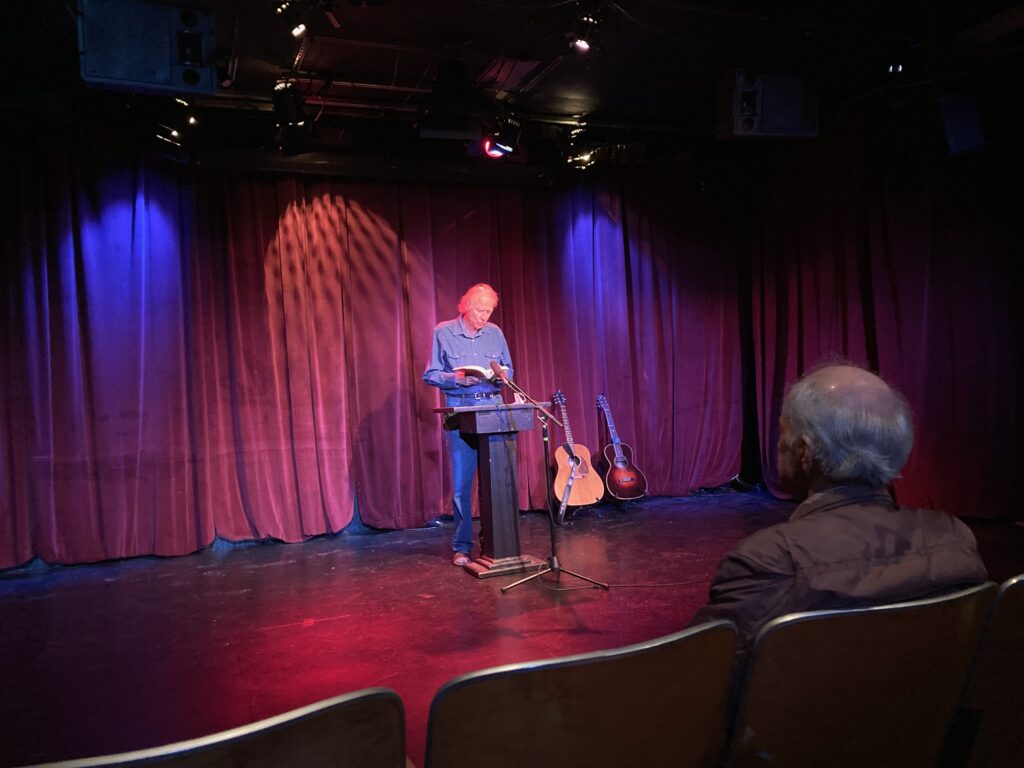
(Harry E. Northup)
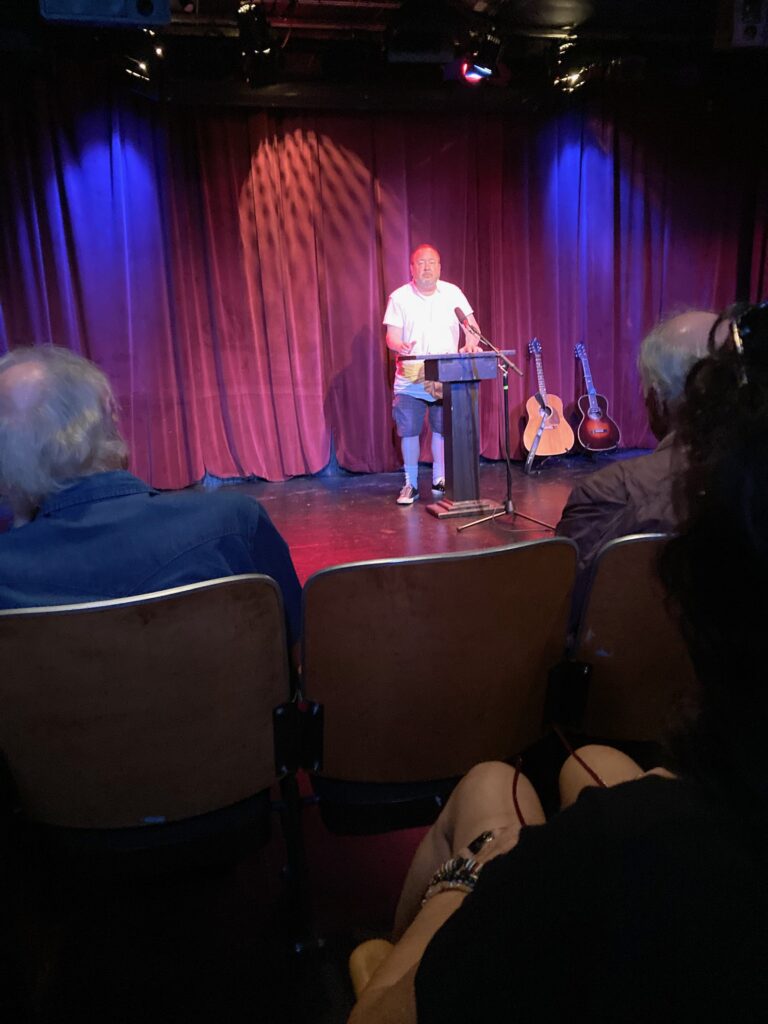
(Richard Loranger)
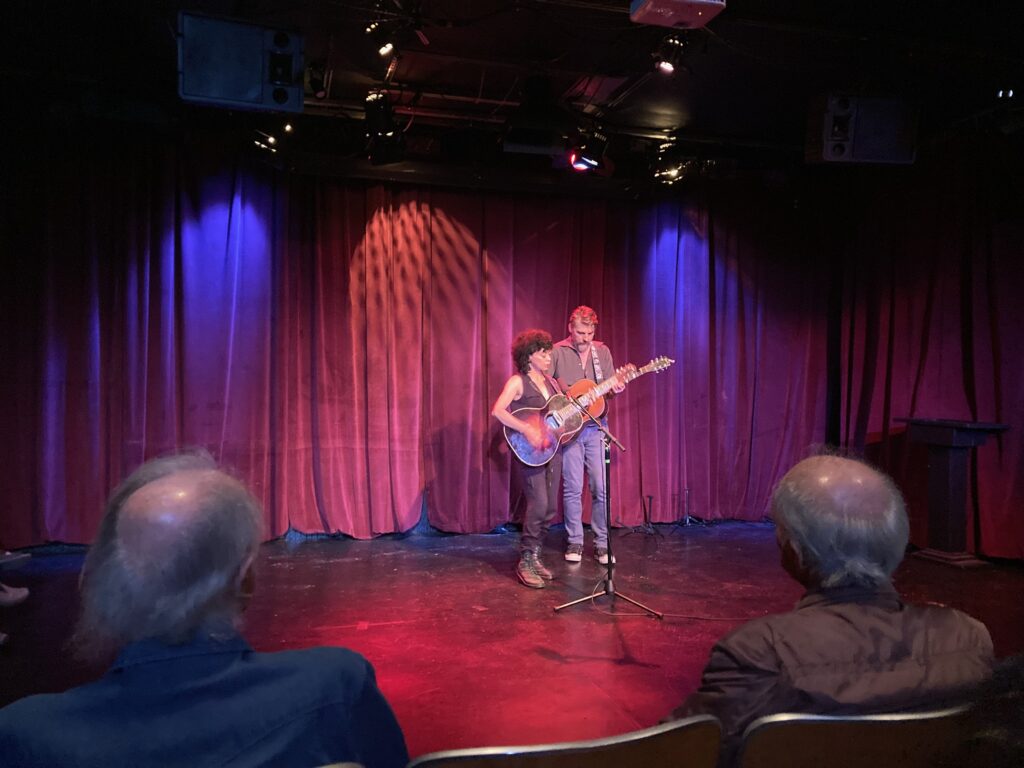
(Petty Chavez)
 About Bill Mohr
About Bill Mohr